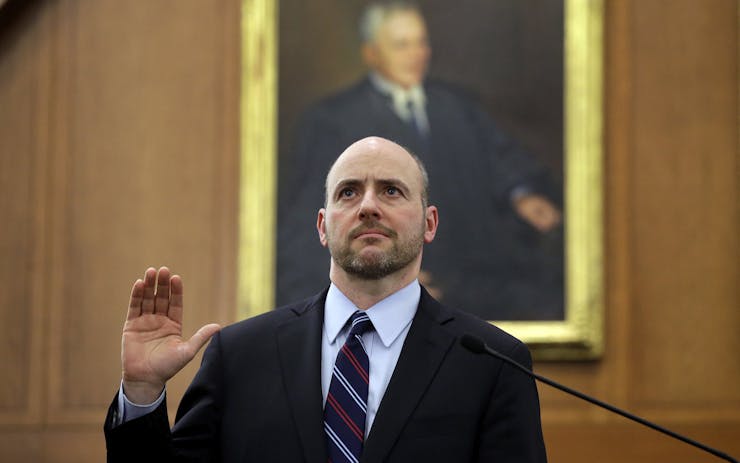Remember when Jeff Sessions tried to turn the tide against cannabis legalization? Even within his own Justice Department, the bumbling effort by the US attorney general appears to have fallen flat.
On Tuesday, the top federal prosecutor in Massachusetts—the latest state to launch a regulated retail cannabis market, though stores have yet to open—signaled that he plans to let the state’s legalization rollout move forward.
“I will not effectively immunize the residents of the Commonwealth from federal marijuana enforcement,” US Attorney Andrew Lelling, a Trump appointee, said in a statement. “My office’s resources, however, are primarily focused on combatting the opioid epidemic that claims thousands of lives in the Commonwealth each year.”
Pointing to other states that have legalized cannabis for adult use, Lelling said that he anticipates focusing his cannabis enforcement efforts on a few specific areas. These include overproduction, which Lelling said “creates the risk of illegal, and lucrative, marijuana sales to users in nearby states where recreational marijuana use remains illegal,” and targeted sales to minors. Also a target: organized crime and interstate trafficking of drug proceeds.
BREAKING: US Attorney for MA Andrew Lelling releases statement that all but blesses the state’s regulated marijuana industry, saying he’ll focus on overproduction, sales to minors, and organized crime — essentially, the principles of the Cole Memo rescinded by AG Jeff Sessions. pic.twitter.com/37TslEQVFw
— Dan Adams (@Dan_Adams86) July 10, 2018
In his statement, Lelling made it clear that he can’t guarantee that federal prosecutors or law enforcement agents won’t ever take action against state-legal cannabis. But by prioritizing overproduction, diversion, and underage sales—which are prohibited not only at the federal level, but also under state law—Lelling’s office may actually be doing the legal industry a favor, going after bad actors who could tarnish Massachusetts’s nascent legal market.
As Boston Globe cannabis reporter Dan Adams noted, the enforcement priorities also echo those identified in the Cole memo, the Obama-era DOJ policy that Sessions rescinded in early January, at the height of the attorney general’s campaign against state-legal cannabis.
Lelling issued a less committal statement in the immediate aftermath of Sessions’ undoing of the Cole memo. At the time, said he was unable to provide any assurances to participants in the state-legal marijuana trade, calling the matter “a straightforward rule of law issue.”
“Congress has unambiguously made it a federal crime to cultivate, distribute and/or possess marijuana,” Lelling said in the Jan. 8 statement. “As a law enforcement officer in the Executive Branch, it is my sworn responsibility to enforce that law.”
By the end of January, however, Lelling seemed to acknowledge that his office’s limited resources would be put to better use going after illicit opioids rather than state-regulated, voter-approved cannabis. On Jan. 24, he told reporters: “The number one enforcement priority for my office is the opioid crisis.”
“Twenty-one hundred people in Massachusetts were killed by opioid overdoses last year, not marijuana overdoses,” he continued, “so that’s where my resources are going right now.”
Yesterday’s statement seemed to confirm, in writing, the policy that serves the people of Massachusetts without directly pushing back against Sessions—his boss—in Washington DC.Looking for Legal Cannabis in Massachusetts?





